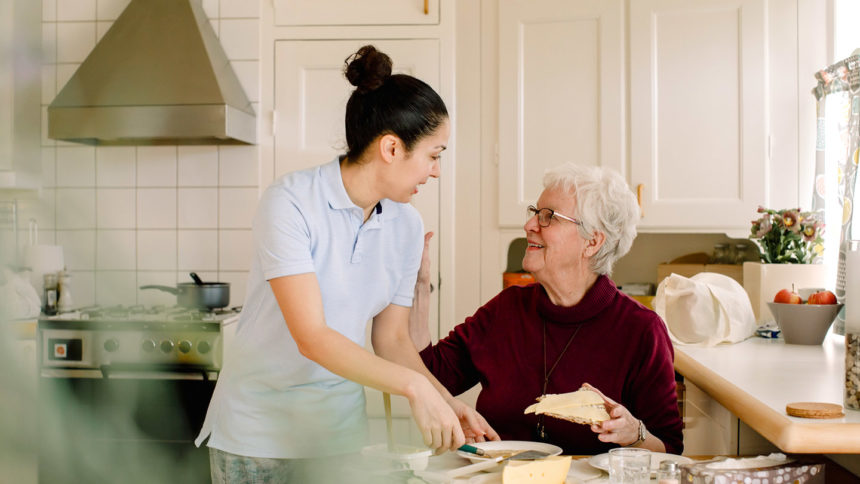
A program called “Do More, Feel Better” is helping older adults battle depression — but not the traditional way with counseling from a therapist. Instead of using mental health specialists, coaches are trained to help people.
The project, an initiative from the University of Washington, trains coaches throughout the state to help older adults with depression. The team includes four Spanish-speaking coaches and four who provide services in English. The team members record their calls with participants to make sure they’re adhering to the curriculum. Overall, they give remote weekly sessions to the people who are participating in the program.
The program has been in place for a few years. As part of the initiative, some of the nearly 60 adults participating received traditional psychotherapy from a mental health counselor and others were connected to a coach over Zoom or phone. The depression interventions were conducted for nine weeks. As of last year, 24 coaches and 24 behavioral activation clinicians have been trained successfully, and 143 English-speaking clients have been enrolled.
Patrick Raue, PhD, a clinical psychologist and professor of psychiatry at the University of Washington, who heads up the research, supervises the volunteers. He calls his process behavioral activation; it’s related to cognitive behavioral therapy, which is the gold-standard treatment for anxiety and depression. The model is based on what’s called task shifting or task sharing, which involves training staff to provide services to meet the needs of more people. It can include training clinicians who aren’t doctors.
His team is still assembling data along with colleagues in New York and Florida. He hopes the program will be an effective, low-cost tool that can be scaled for use at senior centers across the country in the future.
“It’s a high bar, but we’re doing our best and we’re getting really good results,” Raue said to MedicalXPress.
A National Council on Aging article published last year reported that clients in Florida had lower severity of depression symptoms and reduced loneliness because of the program. “It’s looking to empower community members to be able to provide this care for people within their community,” said Alex Dillabaugh, a research assistant at the UW working with Raue to reach the Latino- and Spanish-speaking community.




